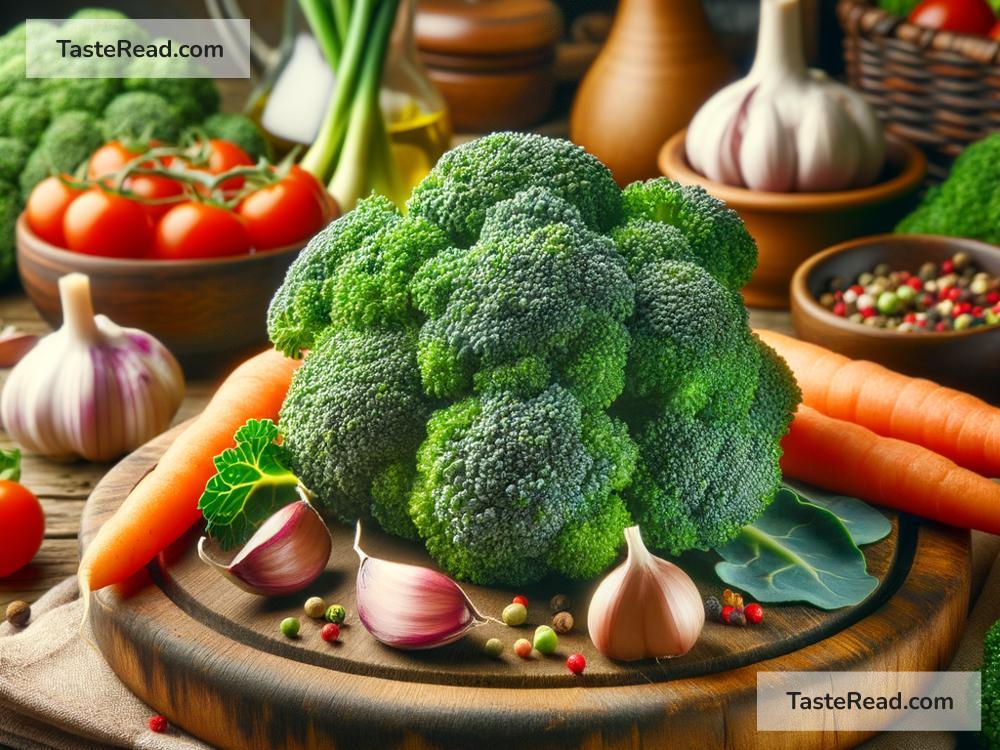Why Broccoli is Considered a Superfood
If you’ve ever been told to eat your broccoli, it turns out that advice isn’t just a clichéd notion about healthy eating—it’s backed by science! Broccoli has earned its reputation as a “superfood” because of its incredible nutritional value and its potential to improve overall health. But what exactly makes this green vegetable so special? Let’s break it down in simple terms.
What is a Superfood?
Before diving into broccoli’s benefits, let’s first explain what a superfood is. Superfoods are nutrient-rich foods that offer extraordinary health benefits. While no single food can provide all the nutrients your body needs, certain foods pack a powerful punch when it comes to vitamins, minerals, and antioxidants. Broccoli is one of those foods.
Broccoli: A Nutritional Powerhouse
Broccoli belongs to the cruciferous vegetable family, which includes cauliflower, kale, cabbage, and Brussels sprouts. It’s famous not just for its tree-like appearance, but also for its ability to deliver an impressive variety of essential nutrients.
Here’s a snapshot of what’s inside:
-
Vitamins and Minerals: Broccoli is packed with vitamins, especially Vitamin C and Vitamin K. Vitamin C boosts immunity and promotes healthy skin, while Vitamin K plays an important role in blood clotting and bone health. Broccoli also contains potassium, calcium, magnesium, and iron—all of which are essential for maintaining a healthy body.
-
Fiber: One cup of broccoli provides a solid amount of dietary fiber, which helps keep your digestion running smoothly. Fiber also contributes to heart health and helps with weight management by keeping you full longer.
-
Antioxidants: Broccoli is loaded with antioxidants, which are compounds that help protect your cells from damage caused by free radicals. Free radicals can lead to aging and chronic diseases, such as cancer and heart disease. By fighting these harmful molecules, broccoli helps keep your body strong and healthy.
-
Phytonutrients: Another unique aspect of broccoli is its high content of phytonutrients, which are natural chemicals found in plants. Some studies suggest that the phytonutrients in broccoli may help reduce inflammation and lower the risk of chronic illnesses.
Health Benefits of Broccoli
Now that we know what makes broccoli so rich in nutrients, let’s take a closer look at some of the specific health benefits.
1. Supports a Strong Immune System
The Vitamin C in broccoli helps your body fight off infections and illnesses. A single cup of cooked broccoli provides over 100% of the daily recommended amount of Vitamin C! This makes it a fantastic addition to your diet, especially during cold and flu season.
2. Cancer Prevention
One of the reasons broccoli is frequently labeled a superfood is its potential role in preventing cancer. Broccoli contains a compound called sulforaphane, which research suggests may help prevent certain types of cancer. Sulforaphane works by protecting cells and reducing inflammation, which can lower the risk of abnormal cell growth.
3. Improves Heart Health
The potassium and antioxidants in broccoli play a big role in keeping your heart healthy. Potassium helps regulate blood pressure, while antioxidants work to protect your blood vessels and heart from damage. Broccoli is also high in fiber, which can lower cholesterol levels and reduce the risk of heart disease.
4. Promotes Healthy Digestion
Fiber is one of broccoli’s key components when it comes to digestive health. Eating foods high in fiber helps prevent constipation and promotes a healthy gut. Plus, broccoli contains special compounds that may support your gut microbiome—the collection of good bacteria in your stomach.
5. Strengthens Bones
Broccoli helps your bones stay strong and healthy thanks to its high levels of Vitamin K and calcium. Both nutrients are essential for bone density and overall skeletal strength. Including broccoli in your meals can be especially beneficial as you age and want to reduce the risk of osteoporosis.
6. Boosts Brain Health
Believe it or not, broccoli may even help give your brain a boost! Sulforaphane, along with other compounds found in broccoli, has been shown in studies to support cognitive function and protect the brain against age-related decline.
How to Enjoy Broccoli
The great thing about broccoli is that you have so many options for including it in your diet. Whether you steam it, roast it, stir-fry it, or blend it into a soup, broccoli is delicious and easy to prepare. You can pair it with chicken, toss it into pasta, or even snack on raw broccoli with a creamy dip. The possibilities are endless!
If you’re not a fan of its flavor, try experimenting with spices, sauces, or other cooking techniques to make it more appealing. For example, roasting broccoli with olive oil, garlic, and a sprinkle of Parmesan cheese can transform it into a mouthwatering side dish.
Conclusion
Broccoli is considered a superfood because it’s jam-packed with nutrients that offer immense health benefits. From boosting immunity to supporting heart health, digestion, and even brain function, this humble vegetable truly deserves a place on your plate. Whether you’re already a broccoli lover or new to incorporating greens into your diet, this is one superfood you won’t want to skip.
So, the next time someone tells you to eat your broccoli, just remember—it’s not only good for you, it’s a little green powerhouse waiting to make your body healthier and stronger.


